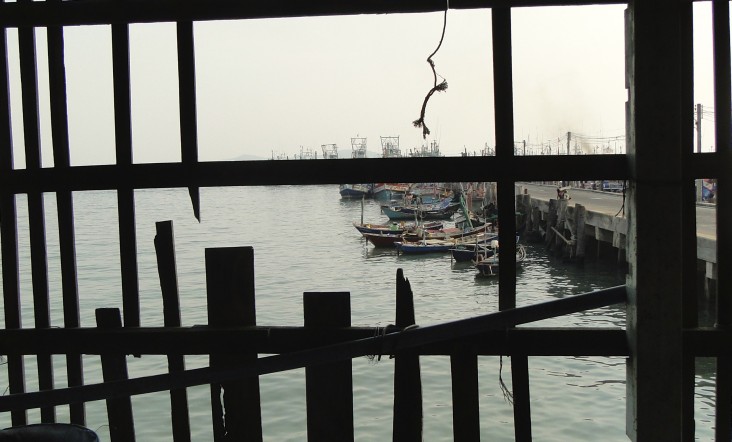
January 2017—“Help me. I’ve been trafficked.”
This was the private social media message USAID and the International Organization for Migration’s IOM X project received in August of last year. The sender was 26-year-old Pisey* from Cambodia. He was trapped in a foreign country on a remote island far from home and needed help.
Through a series of private messages, his story emerged: He had been promised work as a translator on a fishing boat, but upon embarking, he was forced to perform hard labor.
After three months at sea, the boat docked in the Marshall Islands. Pisey got to shore, but without his passport, which was held by his employer, who demanded $4,000 for its return. He was scared and stranded on a small island thousands of miles away from his family.
“I am from Cambodia,” wrote Pisey. “I got cheated [to work on a] ship as a translator and reporter. But when I [got] on the ship, they [forced me to work] as a laborer.”
Upon receiving the message, IOM X immediately got in touch with colleagues at IOM Cambodia and IOM Micronesia, who worked with local law enforcement to cross-check the details of his story. Logs showed that his ship had indeed docked at the port, and his description of the surroundings matched up.
With stories of migrant workers from Cambodia being exploited on foreign fishing boats dominating news headlines, Pisey and his family were aware of the danger, and they tried to ensure that he received a clear and fair contract from the recruitment agency. Despite taking these precautions, he still fell victim to abuse.
In this case, Pisey was lucky. The year prior, USAID and IOM X had launched a video and social media campaign about exploitation in the fishing industry, which came up at the top of his search results when he was looking for help.
Pisey’s story had a happy ending. Within days of contacting IOM X, local law enforcement officers in the Marshall Islands secured the return of his passport, and he flew back to Phnom Penh.
But what happened to Pisey also reflects gaps in protection for workers on fishing boats. Many fishing boats—especially those involved in illegal fishing—practice what’s called “at-sea transshipments,” which allow ships to avoid port controls and docking to let off workers. This isolation, lack of connection to the outside world, and lack of passports that are in the hands of employers make workers extremely vulnerable to abuse.
In the worst cases, exploited fishermen face 18- to 20-hour workdays, cramped living quarters, drinking water and food shortages, and the requirement to work even when they are fatigued or ill.
According to the International Labor Organization, forced labor in the agriculture sector, which includes fishing, generates an estimated $400 million in illegal profits annually in the Asia-Pacific region. An estimated 1 million people in the region are victims of forced labor in the agricultural sector.
Pisey’s case underscores the need for sharing safe migration tips, such as checking with a migrant resource center before accepting a job and memorizing a helpline number in the country of destination, as well as the emerging role of social media as a rapid response tool to help those in need.
Visit IOMX country-specific helplines to report suspected human trafficking.
*Name changed to protect identity.
LINKS
Follow @USAIDAsia, on Facebook, on Flickr, on YouTube







Comment
Make a general inquiry or suggest an improvement.